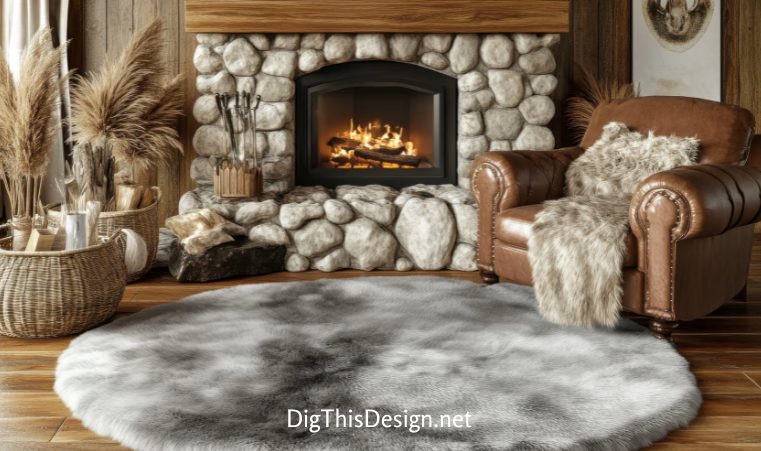Selecting the right rug can transform a space, but choosing the perfect rug size often feels overwhelming. As an interior designer, I say a rug anchors your furniture, defines your room, and ties together your design scheme. You never want it too small, because it can make the space look unbalanced; too large, and it overwhelms your layout. I have developed the perfect, clear guidelines to help you find the right fit.
Here are five brilliant strategies to ensure you always choose the perfect rug size for any room in your home.
A Guide for Choosing the Perfect Rug Size

1. Measure Before You Shop
I am a stickler for proper measuring of a room before laying out your room scheme. The first step to achieving the perfect rug size is measuring your space before heading to the store or shopping online. Take note of the dimensions of your room and the placement of your furniture.
A rug should frame your seating area, not float in the middle of the floor. By starting with accurate measurements, you’ll narrow down your options and avoid costly mistakes. Once you know your room measurements, you can calculate your rug size and easily shop for the right rug choice.
2. Follow Living Room Guidelines
In living rooms, a common mistake is choosing a rug that’s too small. The perfect rug size should allow the front legs of sofas and chairs to rest on the rug. This creates a cohesive seating arrangement and makes the room feel grounded. For larger rooms, consider placing all the furniture legs on the rug to create a unified and spacious look. The outcome of this layered approach adds depth to your overall room décor.
3. Don’t Forget the Bedroom
Bedrooms can be tricky, but the perfect rug size depends on how you want the rug to frame your bed. For a queen or king, the rug should extend at least 18–24 inches beyond the sides and foot of the bed. This will allow the person getting out of bed to step on a comfy rug. Alternatively, you can use runners on each side of the bed for a layered, practical approach. This ensures comfort underfoot while still maintaining balance.
4. Dining Room Rules
When it comes to dining spaces, the perfect rug size should accommodate not only the table but also the chairs when they’re pulled out. A good rule of thumb is to allow at least 24 inches beyond each edge of the table. This prevents chairs from catching on the rug and keeps the look polished. The shape of the rug should follow your table shape. Circular tables look best with round rugs, while rectangular rugs enhance elongated tables.
5. Scale for Smaller Spaces
In smaller rooms, the perfect rug size might mean embracing a rug that nearly fills the floor, leaving a narrow border of exposed flooring. This makes the room appear larger and more cohesive. For entryways or hallways, consider runners that match the length of the space without overwhelming it. Choosing scale correctly ensures the rug complements rather than competes with the room’s proportions.
Bonus Tip: Layer for Style
Sometimes, the perfect rug size can be achieved through layering. If you have a smaller statement rug you love, place it on top of a larger neutral rug. This technique adds texture, interest, and dimension while solving the problem of an undersized rug.
Why Rug Size Matters
The perfect rug size isn’t just about aesthetics; it impacts how comfortable and functional your space feels. Rugs absorb sound, add warmth, and create zones within open-concept layouts. By getting the dimensions right, you’ll enhance both the beauty and usability of your home.
Final Thoughts
Finding the perfect rug size doesn’t have to be a mystery. By measuring carefully, following room-specific guidelines, and considering scale, you can confidently select rugs that elevate your design. Whether in the living room, bedroom, dining area, or hallway, the right rug sets the stage for a cohesive, stylish, and welcoming home.





